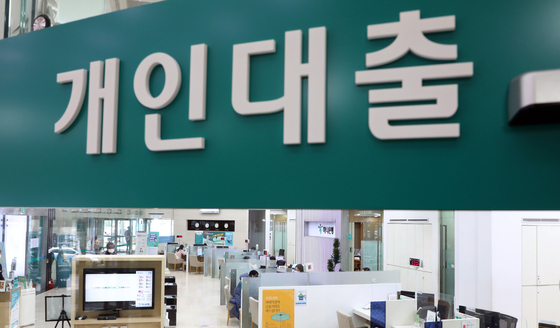Even high-income workers are having difficulty breaking through negative bankbooks of 50 million won or more at commercial banks. Commercial banks have drastically reduced the limit on negative bank accounts due to pressure from the financial authorities to reduce credit loans to office workers.

yunhap news
According to the financial sector on the 1st, Shinhan Bank decided to lower the limit of’SOL convenient’ credit loans for office workers and negative bankbooks (limit transaction loans) to 50 million won from the 3rd. The existing limit is 100 million won.
On the 29th of last month, Woori Bank also reduced the limit of negative bankbook loan products from 80 million won to 100 million won to 50 million won. On the 22nd of last month, Kakao Bank also lowered the limit of credit loan products for high-credit office workers, including negative bankbook loans, from 150 million won to 100 million won. On the 28th of last month, K-Bank raised the interest rate for negative bankbook loans for office workers by 0.1 percentage point and raised the minimum interest rate to 3.0% per year.
As of the beginning of the year, the demand for negative bankbooks has been increasing rapidly. According to the five major commercial banks such as KB Kookmin, Shinhan, Hana, Woori, and NH Nonghyup, newly opened negative bank accounts on January 4 to 28 (19 business days) totaled 43,143. On average, about 2,200 new items per day were created. This is twice the level of last December (average of about 1000 per day). It is interpreted as a result of the increase in demand for loans before the financial authorities’ credit loan regulations come out and the demand for investing in debt and stocks.
The fire also fell on the foot of the bank, which had to manage household loans. Since the beginning of this year, financial authorities have been putting strong pressure on commercial banks to manage household loans. The banking sector predicts that the Financial Supervisory Service will not allow household loans to increase by more than 5% from last year. Last year, the total household loans of commercial banks increased 9.73% (59,3977 billion won) from the previous year.
An official from the banking sector said, “It is not easy to reduce other household loans, such as home mortgage loans and all-out house loans, as there is a natural increase.” In order to meet the growth rate of household loans, credit loans must eventually be tightened. It is highly likely to be a means of managing household loans as it is used in many cases.”
Reporter Ahn Hyo-seong [email protected]
